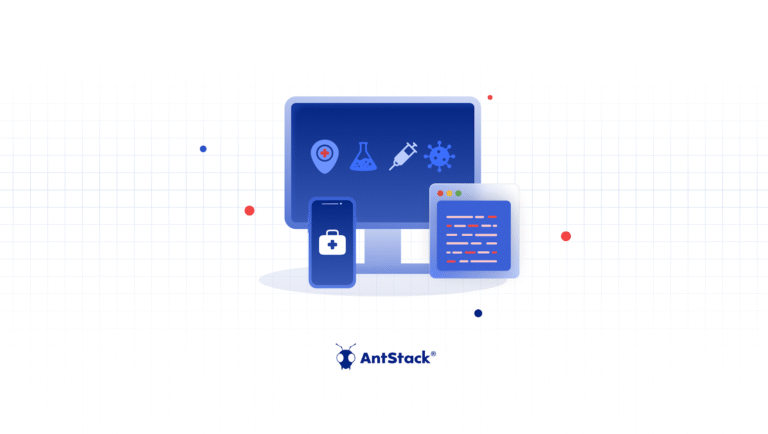Your healthcare app can now automatically understand medical language using advanced natural language processing (NLP) technologies. These innovations enhance clinical data interpretation, greatly improving workflow efficiency and patient care. With features like automatic data extraction and rapid processing of clinical information, you’re set to streamline operations while reducing administrative tasks.
This capability empowers better decision-making and fosters stronger patient relationships. Discover how these advancements further transform healthcare by integrating unstructured data and ensuring compliance with privacy regulations.
Menu list
The Evolution of Healthcare NLP Technologies
As healthcare evolves, understanding how Natural Language Processing (NLP) technologies have advanced is essential for grasping their role in transforming medical practices. This progress is significantly exemplified by tools like Amazon Comprehend Medical, which harnesses AWS Comprehend Medical’s capabilities to accurately interpret clinical language.
These innovations enable healthcare professionals to tackle complex data analysis challenges, enhancing patient care delivery. Clinical documentation automation leads to improved efficiency in regulatory reporting and allows clinicians to focus more on patient care.
Increased adoption rates stem from advancements in machine learning, integrating smoothly with existing AI systems to address specialized healthcare issues, such as clinical trial matching or public health analysis.
Collaborative research between tech firms and healthcare providers fosters innovative solutions for integrating disparate systems, while experts continue to refine methodologies for managing unstructured data, ensuring clinical accuracy in patient treatment and outcomes.
Benefits of Automating Medical Language Understanding
Automating medical language understanding provides significant advantages that enhance the efficiency of healthcare delivery. By employing tools like Amazon Medical Comprehend, you can extract clinical data automatically, reducing the time spent on manual reviews and improving accuracy in discerning essential patient information. This technology also augments documentation efficiency, allowing physicians to focus on complex cases while minimizing errors in transcription.
Enhanced communication is another benefit, as automated systems simplify patient interactions and streamline staff communications. Furthermore, you’ll gain valuable insights from extensive datasets, paving the way for better healthcare outcomes.
Overall, automation not only alleviates administrative burdens but also directs resources toward priority tasks, making your practice more effective and cost-efficient. Additionally, NLU identifies missing, incomplete or inconsistent documentation, further enhancing the accuracy of patient records and supporting optimal billing processes. Importantly, ACM’s capabilities reduce administrative burdens by streamlining data management and improving overall clinical workflows.
Key Features of Advanced NLP Engines in Healthcare
Advanced Natural Language Processing (NLP) engines are transforming the landscape of healthcare by delivering features that greatly enhance clinical workflows. These tools improve clinical documentation by automatically extracting key details like patient IDs and symptoms, reducing administrative burdens. They recognize data patterns in medical literature, supporting quality care and innovation.
NLP also enhances diagnosis accuracy by processing vast clinical data quickly, allowing for earlier intervention. The ability to analyze massive patient datasets enables healthcare providers to derive insights that improve clinical decision-making. Moreover, adopting serverless architectures within NLP applications can further boost their scalability and performance, ensuring they meet the dynamic demands of healthcare environments.
Integration with AI chatbots enables complex query handling, boosting patient engagement. Additionally, NLP tools provide real-time insights from unstructured data, facilitating data-driven decision-making. The seamless integration with EHR systems aids in maintaining accurate patient records, ultimately streamlining clinical processes and promoting personalized medicine tailored to individual patient profiles.
Transforming Clinical Workflows With Unstructured Data Processing
The integration of advanced NLP technologies not only streamlines clinical documentation but also addresses the complexities of unstructured data prevalent in healthcare. By transforming unstructured data into actionable insights, you can enhance clinical workflows in meaningful ways:
- Improved Patient Profiles: Dive deeper into patient histories, capturing details traditional formats miss.
- Efficient Clinical Trials: Identify participants quicker, enhancing recruitment and trial outcomes, which is crucial since 80% of clinical trials fail to meet recruitment targets on time.
- Reduced Clinician Workload: Free up time for providers, allowing them to focus more on patient care.
Harnessing these benefits is essential.
With about 80% of healthcare data remaining unstructured, advanced tools are necessary to automate extraction, improve interoperability, and ultimately drive better patient outcomes.
Ensuring Compliance and Privacy in NLP Applications
While steering through the complexities of NLP applications in healthcare, guaranteeing compliance and privacy remains vital.
You’ll need to adhere to HIPAA regulations since NLP often processes sensitive patient data. This requires obtaining patient consent, applying data encryption, and implementing strict access controls. Regular security audits are essential for maintaining compliance and safeguarding patient confidentiality. Additionally, leveraging NLP enhances efficiency in regulatory processes can further streamline compliance monitoring efforts. Furthermore, adopting a serverless architecture can greatly reduce operational overhead, thereby allowing teams to focus on compliance rather than infrastructure.
To enhance data privacy, secure storage systems and advanced machine learning algorithms should be utilized. Furthermore, automated compliance checks using NLP can streamline monitoring and reporting processes, minimizing the risk of human error. Continuously evaluating and adjusting NLP algorithms further guarantees both effectiveness and security, making it important to partner with data privacy professionals for ethical implementation.
Frequently Asked Questions
How Does NLP Differentiate Between Similar Medical Terms?
NLP differentiates similar medical terms through techniques like tokenization, lemmatization, and contextual understanding. By analyzing relationships and using standardized medical terminologies, it guarantees accurate interpretation, reducing misdiagnosis and enhancing clarity in clinical communication.
What Level of Accuracy Can We Expect From These Systems?
Imagine a microscope revealing hidden details. You can expect tailored systems to achieve high accuracy in medical language comprehension, especially when fine-tuned with rich, domain-specific data, continuous learning, and real-time clinician feedback.
Can NLP Handle Multiple Languages in Healthcare Data?
Yes, NLP can handle multiple languages in healthcare data, but challenges like dialect variations, morphological complexity, and lack of parallel corpora persist. Solutions like transfer learning and hybrid models help enhance accuracy and interoperability across languages.
How Does NLP Protect Patient Data From Breaches?
NLP protects patient data through automated compliance checks, anomaly detection, data redaction, and encryption. It actively monitors access patterns and applies dynamic anonymization to guarantee sensitive information remains secure and unauthorized access is prevented.
What Types of Healthcare Apps Can Use NLP Technology?
Your healthcare app can harness NLP technology for patient triage, automated transcription, clinical trial matching, and prior authorization processing, transforming medical interactions into streamlined workflows, like turning chaos into a well-orchestrated symphony of care.
Conclusion
As you embrace the potential of advanced healthcare NLP technologies, you’re stepping into a new era of medical insights, much like the dawn of the printing press revolutionized information access. By automating medical language understanding, you can streamline clinical workflows and enhance patient care while ensuring compliance and privacy. Your healthcare app can be a pivotal tool in transforming raw data into actionable intelligence, empowering you to make informed decisions that resonate profoundly across the healthcare landscape.





